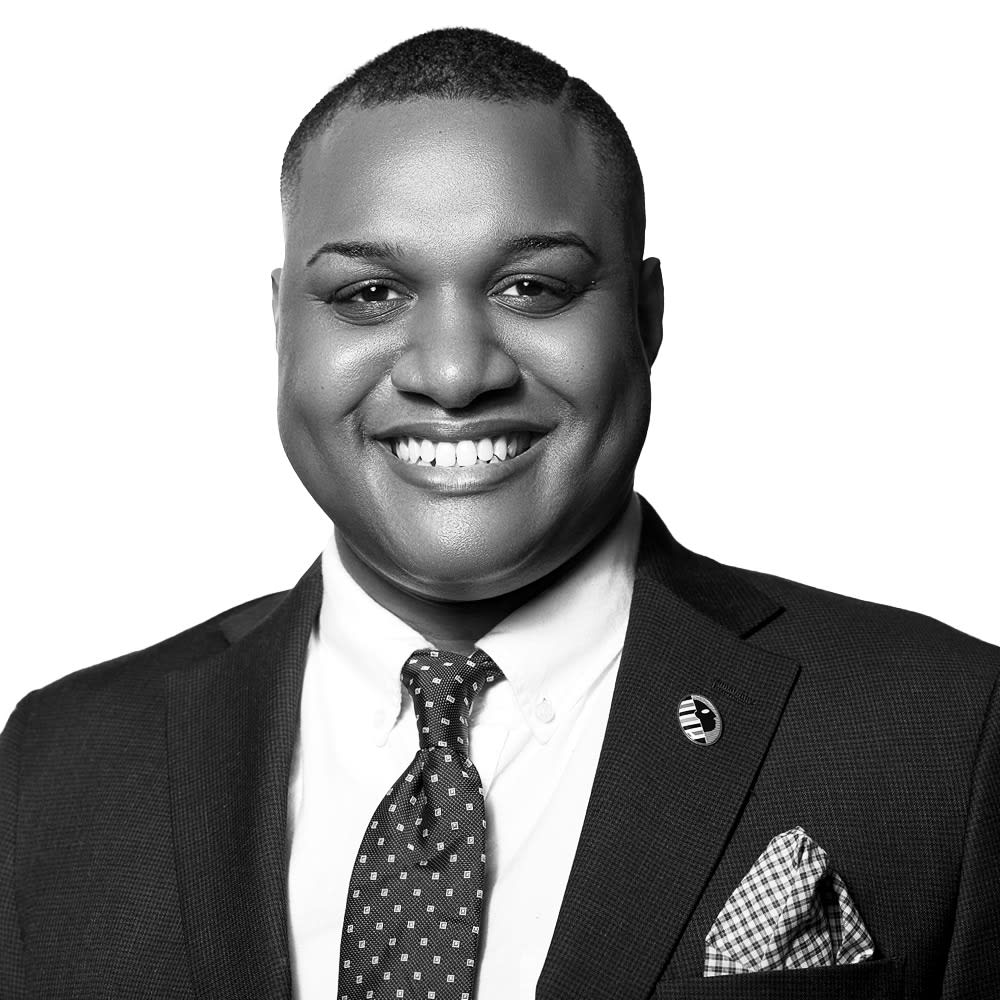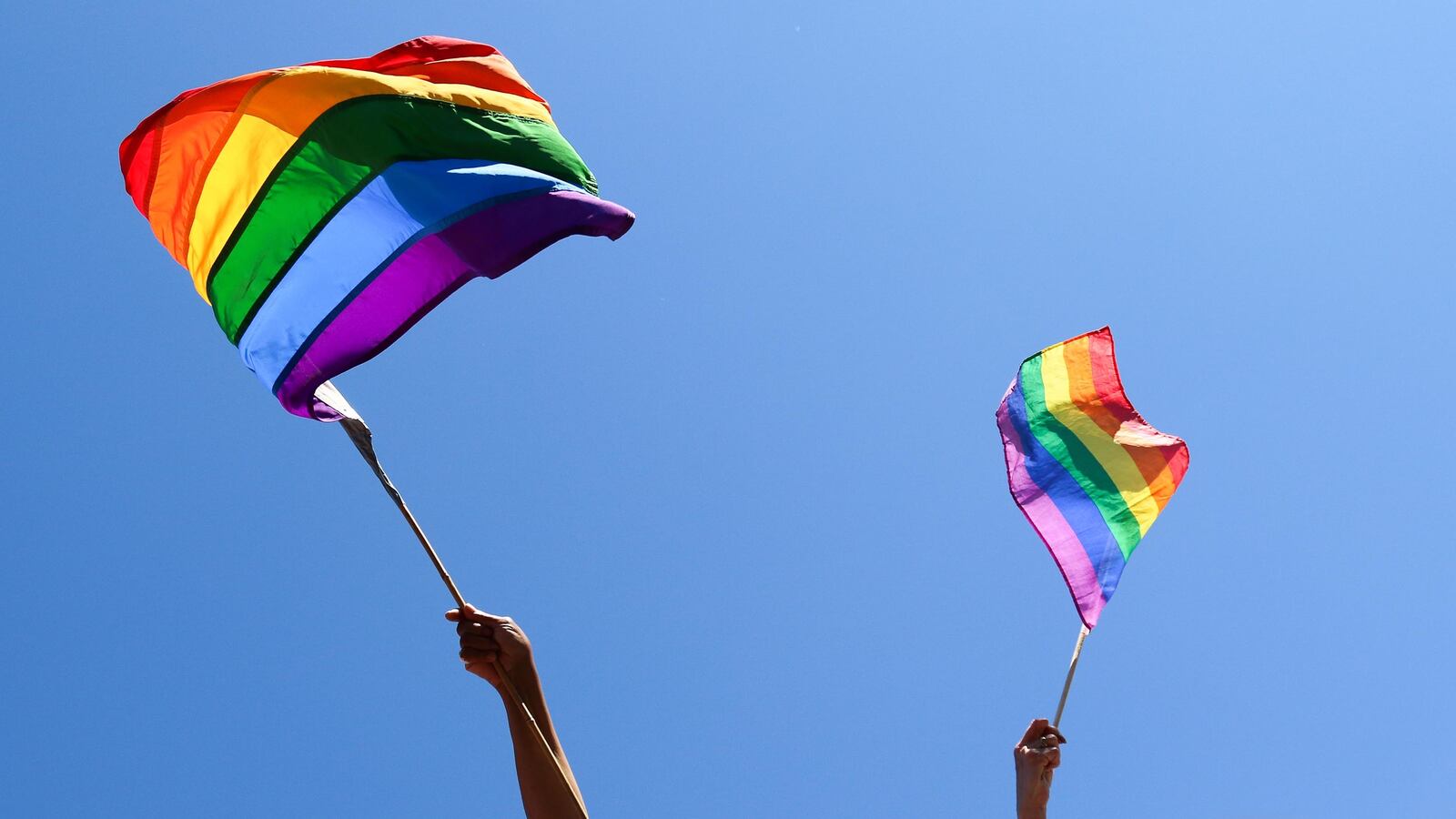Monday was the first day of the Senate confirmation hearings for Trump’s Supreme Court nominee Amy Coney Barrett, and from the Affordable Care Act to reproductive rights, Democrats raised concerns that appointing Barrett at this moment would threaten hard-won social progress. There has been much debate surrounding Barrett’s “religious liberty” views and how it will impact Roe v. Wade and other laws. However, the threat to LGBTQ rights, such as marriage equality, was only given a brief mention by Senator Kamala Harris in her remarks. And nothing more.
Right now, the LGBTQ progress that has already been made is under attack by conservatives at the Supreme Court. Last week, during the first day of their new term, Supreme Court Justices Clarence Thomas and Samuel Alito argued that the marriage equality ruling was improperly decided and recommended that the court should “fix” the decision.
This comes at a time when conservative justices stand to have an overwhelming majority in the court following the death of Justice Ruth Bader Ginsburg. The stakes couldn’t be any higher right now for a community that has already seen transgender protections in the military threatened, and a rise in hate crimes impact our way of life.
Unfortunately, this has become a part of a larger trend of politicians on both sides of the aisle not addressing LGBTQ rights on the main stage of public hearings and presidential debates. As someone who has supported progressive candidates my entire life, I have felt a sense of neglect in the lack of inclusion of my lived experience as a queer person. It feels as if LGBTQ people are an afterthought
The first time a specific question on LGBTQ issues was asked of candidates during the 2020 Democratic presidential debates was on Dec. 19, 2019. Yamiche Alcindor, one of the moderators of the PBS NewsHour-Politico debate in Los Angeles, asked Senator Bernie Sanders what he would do to pass the Equality Act if elected president.
The long-awaited question came after several debates and town halls had excluded the discussion of LGBTQ rights altogether. Even worse, the previous Nov. 20 debate was held on the same day as Transgender Day of Remembrance, and there was no mention, for example, of the fact that Black transgender women are being killed at a disproportionate rate. The issue of excluding LGBTQ topics from the national debate stage was so glaring that LGBTQ media advocacy group GLAAD, The Advocate, and the Cedar Rapids Gazette had to host their own LGBTQ forum in Sept. 2019.
It’s now less than a month away from the general election, with two national debates completed, and LGBTQ issues are still being neglected by our presidential and vice presidential candidates. I expect nothing from Trump and Mike Pence, of course, but I have been disheartened to see Joe Biden say little about the LGBTQ efforts he helped advance during his tenure alongside Barack Obama. It has also been baffling to see debate moderators continue to ignore any mention of a topic specifically impacting LGBTQ lives, and now I’ve grown skeptical that they actually will.
As a Black queer millennial, I have observed that the political attention over LGBTQ rights has dwindled since the Supreme Court ruled in favor of marriage equality in 2015. Many have presumed that lesbian, gay, bisexual, transgender, and queer people are living their best lives. But marriage equality did not address state-sanctioned discrimination based on sexual orientation and gender identity in other livelihood aspects.
In some states, such as Pennsylvania where I currently live, a same-gender couple can get married on Saturday and lose their apartment lease on the following Monday for posting wedding photos. With the exception of some cities like Philadelphia and Pittsburgh, where municipal fair practice ordinances protect LGBTQ citizens, there are no statewide mandates for other nearby counties to do so. In fact, there are no federal protections that can outlaw anti-LGBTQ discrimination outside of marriage rejection solely.
With the exception of this summer’s historic Supreme Court decision that ruled that the 1964 Civil Rights Act protects LGBTQ employees from discrimination based on sex, nothing else has gotten better. The Equality Act, a comprehensive bill that would federally protect LGBTQ citizens from discrimination in employment, housing, credit, education, public spaces and services, federally funded programs, and jury service, is currently tied up in a Republican-led Senate.
Next year, I plan to marry my fiancé, whom I’ve dated for seven years. It was during this time that marriage equality became the law of the land and politicians like Obama, Biden, and many others told me that “love is love.” Right now, all of this progress could be disrupted by another Supreme Court appointment by Trump. The complexities of being both Black and queer make this even more difficult, because my rights could be still denied for my latter identity even if an act of discrimination is really based on the former. For example, who is to say that a bigot couldn’t use my sexual orientation to deny me access to a public space when they truly have an issue with my racial identity? A lack of protections for LGBTQ people can also influence a more sinister form of covert racial discrimination.
One would assume that one of the most profound civil rights issues of this generation would provoke a response from candidates from Democrats. So far, it hasn’t. And quite frankly, it’s insulting. LGBTQ voters in particular have given the Democratic Party undeniable loyalty over the years. According to GLAAD’s State of LGBTQ Voters report released earlier this month, 74 percent of LGBTQ registered voters are supporting Biden in November.
I deserve, like every other cisgender-heterosexual voter, the opportunity to feel seen and heard. My rights are on the line, and the fate of my humanity lies in the balance. LGBTQ voters have worked too damn hard to get Democratic candidates elected to now be tossed to the side with minor mentions or subtle nods. We are a legitimate voting bloc that should be told what is going to be done to protect us as the Trump administration continues to fail us.
For what it’s worth, our presidential candidates and Court nominees owe us a public acknowledgement of our hardship and a response to what they plan to do to address it. LGBTQ issues shouldn’t be put back in the closet just because some have advanced. For them to turn a blind eye now could set us further back than we can afford to endure.






